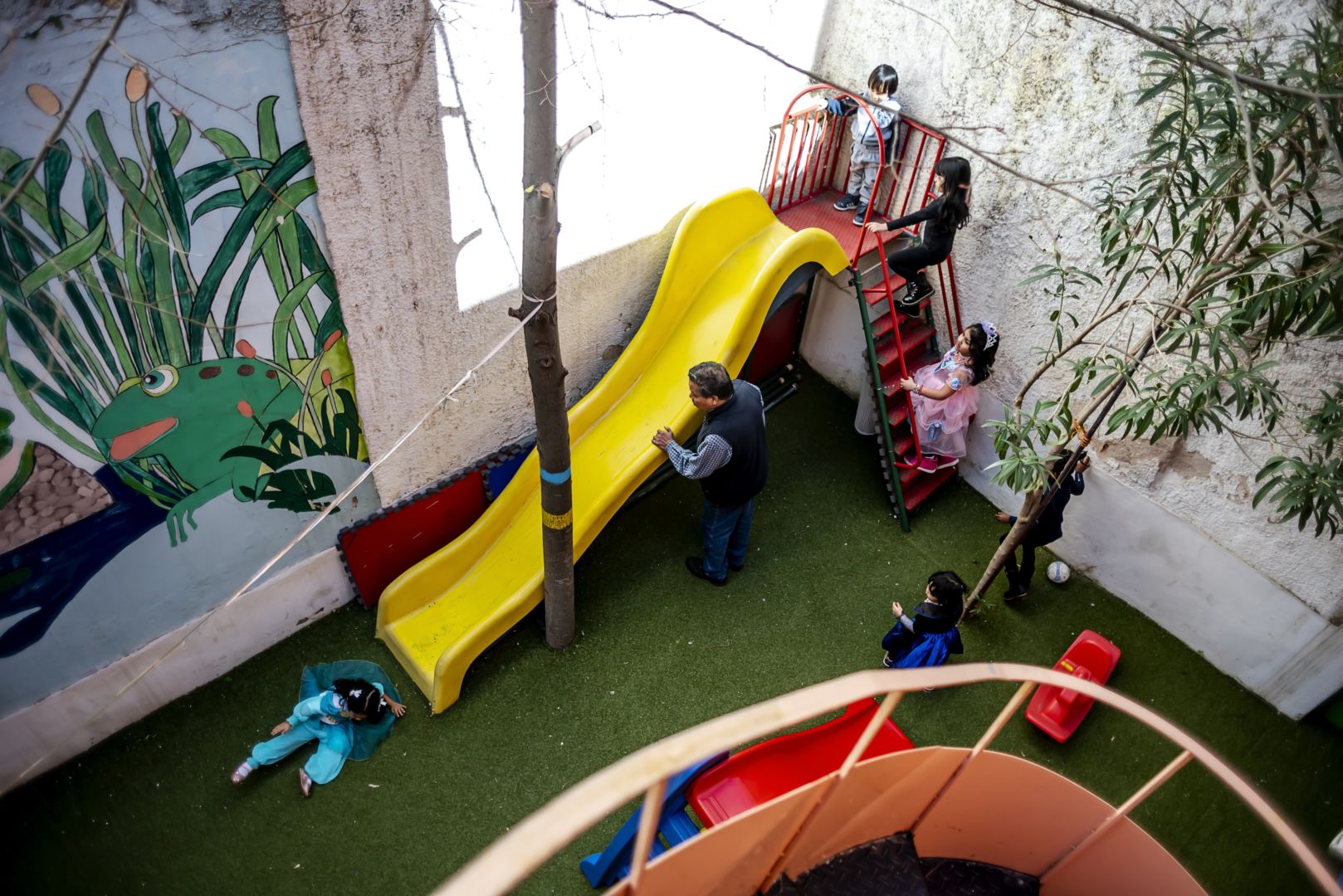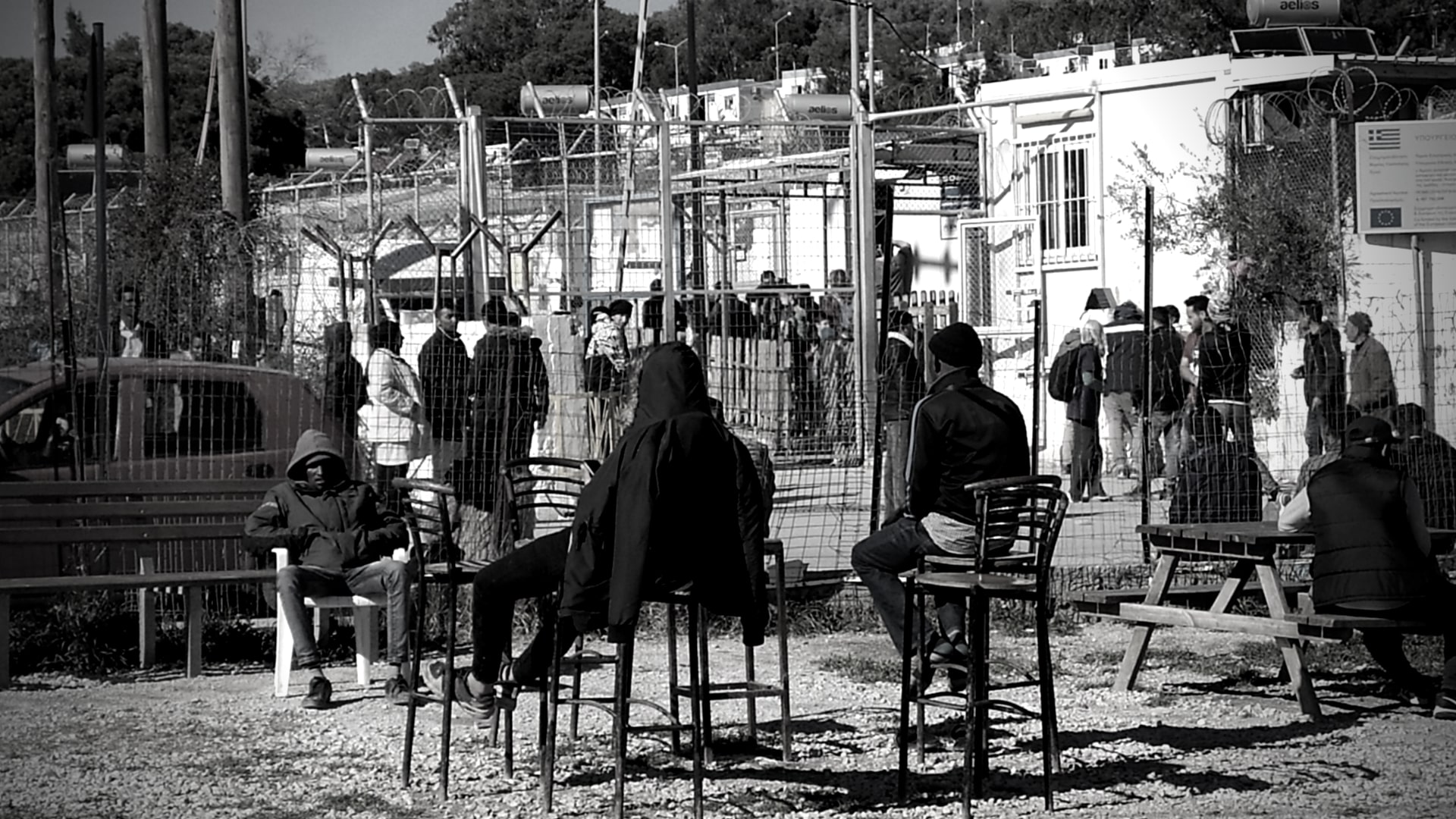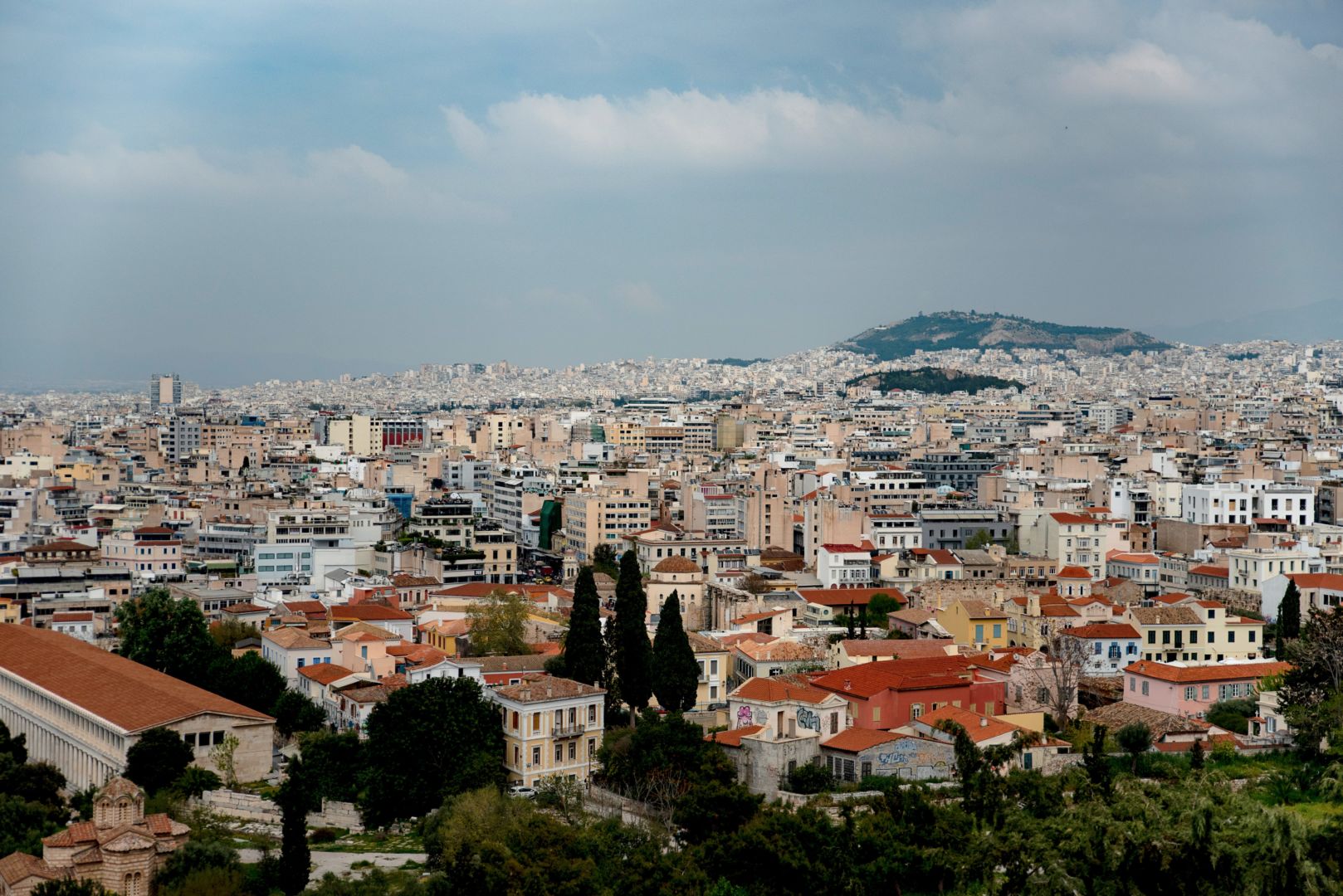For the past two and a half decades, the difficulties the school has encountered have not been few.
“There’s a perception that immigrants are employable only in professions such as domestic work or as gardeners, restaurant workers,” explains Joe Valencia, president of the Association of Filipino Immigrants (KASAPI) in Greece. “That they’re unable to take initiatives towards providing pre-school education and childcare, for preparing children for their future and integration into Greek society.”
It was attitudes like these that resulted in further obstacles appearing one after another. In 1994, when the Filipino community responded to the needs of its members, (whose work days ended several hours after the municipal day care centers closed), decided to start their own day care – they were the very first immigrant community to create their own framework for early childhood education. Even today, no other immigrant community has created their own day care center.
“The first two years were especially difficult,” says Joe Valencia. “We started the day care center in Ambelokipi, on the ground-level of an apartment building, where the neighbors would throw water on our children, complaining about them making too much noise.”
After Ambelokipi, they relocated to Kypseli, to a building that was more suitable, but they were unable to secure the necessary permission from the urban planning board for the operation of a day care center. Despite complaints yet again from the new neighbors, one of which resulted in a fine of €15,000 (which was paid by the generous donations of various organizations), today Joe Valencia smiles as he recalls the frequent visits from the police, and the times that he was called to appear at the police station.
“I ended up at the station because we didn’t have a permit, and I’d ask them ‘what can we do, since their parents are at work? Lock them up inside the house?” In 2011, 17 years after Munting Nayon (‘Open Village’ in Filipino) was created, they finally secured the elusive permit.
From the Filipinos to all
It’s a spring morning in March, and just beyond Patission Ave, we enter a beautiful neoclassical two-story building with a colorfully-painted facade. Here, in one of the most multicultural neighborhoods of Athens, is the third (and final) home of Munting Nayon.
We have a tour of the center: on the ground floor, we first visit the library and some of the rooms, where we meet Angelica and Melodi who are painting the children’s faces with carnival motifs, while on the first-floor dining room, Nikoletta is helping the children with lunch – since last December, daily lunch has been provided by the City of Athens’ Municipal Nursery School. On the menu today is a spinach and rice dish.
A small child of Albanian descent grabs onto my leg, while another child, from Afghanistan, is a bit surprised when he hears Solomon MAG photojournalist Nadir, speaking to him in his native language.

As the staff explains to us, originally the center was intended to meet the needs of the Filipino immigrant community, which, because of their jobs, were away from home well into the afternoon. However, a few months after the center opened, an Albanian father inquired about a place for his daughter. “He asked us if the center was only for Filipino children, as originally, it was,” recalls Valencia, who has been the director of the center since the beginning.
“He was an immigrant like us, so we didn’t have the heart to turn him away.” That’s how it all began, and other immigrant families followed. Today the center hosts 28 children, from the ages of one to five, from 13 different communities. “Apart from children of Filipino descent, we have children from Albania, Pakistan and Bangladesh, and two from Chinese families. We also have children from Ethiopia, the Balkans, and of mixed origin: half Greek, half Filipino,” notes Valencia.
At first, young children from such diverse cultural backgrounds coexisting in the same space might be challenging, as the languages of instruction are English and Greek, and each child has his/her own mother tongue. But consistency paid off. “It’s worked out beautifully, because various cultures come together, and it’s a way to prepare children to integrate into the society in which they were born. They learn to respect diversity, but also to appreciate, on the other hand, their own unique culture,” Valencia points out.
The center opens after 7am and closes at 6:30pm – children eat, sleep and play there, essentially spending more time at Munting Nayon than with their parents. For this reason, the staff offers as much as possible to their upbringing while providing workshops for parents and training seminars for the teachers. “It’s a continuous educational process.”
The objective of true social integration
In the next room, Angelika is playing games with the children. We learn that she attended the center as a child, and now helps as a volunteer. The first generation of Munting Nayon kids are now young adults and, according to Valencia, maintaining contact with them to monitor the process of their integration into Greek society, “socially, economically and politically”, is one of the main concerns of the center’s staff. They encourage the young adults (who have continued to the next levels of education) to participate in the activities of their Greek peers.
“The older students are now Greek citizens, not just second-generation kids,” says Valencia, emphasizing the difference between the two identities. “This is integration. In the forthcoming elections, for example, they have the right to vote but also the right to be candidates.”
And he adds: “It’s wonderful to see that these adults are now working, while some of the young men are currently completing their Greek military service in the regions of Alexandroupolis or Frangonisi. Perhaps it’s a bit odd, although they may have a different skin color, they’re there, at the border, carrying out their duties.”
“We prepare children to appreciate the diversity of society’s multicultural side, because Greece’s social composition is changing. It’s no longer only white, or only Orthodox, it is multicultural: different colors, different cultures,” Valencia concludes.
“We never thought of stopping”
Despite facing difficulties, some racist attitudes and the obstacles of bureaucracy, the people of Munting Nayon have also experienced support: from the lawyers who took on their cases pro bono, the various associations and organisations which made donations when they were in need, like the NGO Engineers of the Earth which ensured that the current space is fully suitable to operate as a day care center.

Nowadays, the center also focuses on extending its reach. In recent years, university students from the USA, Denmark and Finland have completed their teacher training at Munting Nayon. In addition, students from Athener Schule (Greek-German School of Athens) have raised money to help their peers, and participate in joint activities with Munting Nayon.
The center functions as a non-profit and is supported by the Bodossaki Foundation and the small monthly fee which the parents pay. In essence, it raises funds to cover expenses, however at times when their expenses cannot be met, the Association of Filipino Immigrants (KASAPI) has lent funds. Additional revenue to support the center is raised by community participation in various festivals, such as the Athens Antiracist Festival, where KASAPI sells traditional food.
Although the teacher salaries are low, they have the opportunity to supplement their income by working with children at Melissa, an organization which provides support to women and children, whose co-founder is Joe Valencia’s wife, Deborah.
During our visit to the center, if we observed one thing it was the staff’s devotion to these children: the great care that goes into offering food, the way they affectionately praise the kids on their carnival costumes, to Joe Valencia himself who stands by the stairs to carefully watch them descend the steps to the courtyard to play after lunch.
When it comes to the inevitable question: during the past 25 years, overwhelmed by obstacles or bureaucracy, did they ever think of giving up, Valencia doesn’t hesitate for a moment:
“No, never. We never felt weak. Perhaps immigrants are generally weak, but we’re an organization that’s not run by one person, rather we decide together, we continue together. And because of our dedication to our purpose, we also receive the support of the Greeks.”
Joe Valencia concludes, “It’s a commitment for us, we believe in it, and we strive to offer something.”






